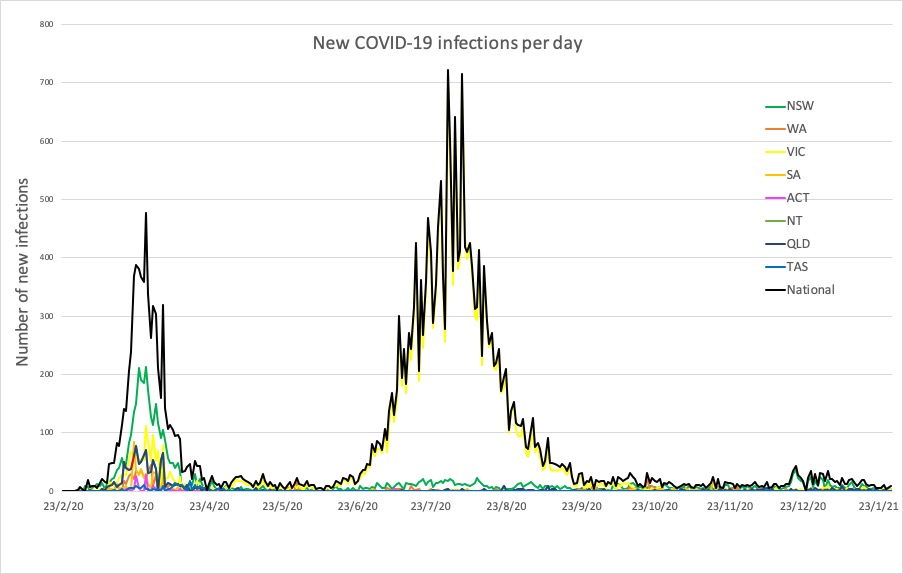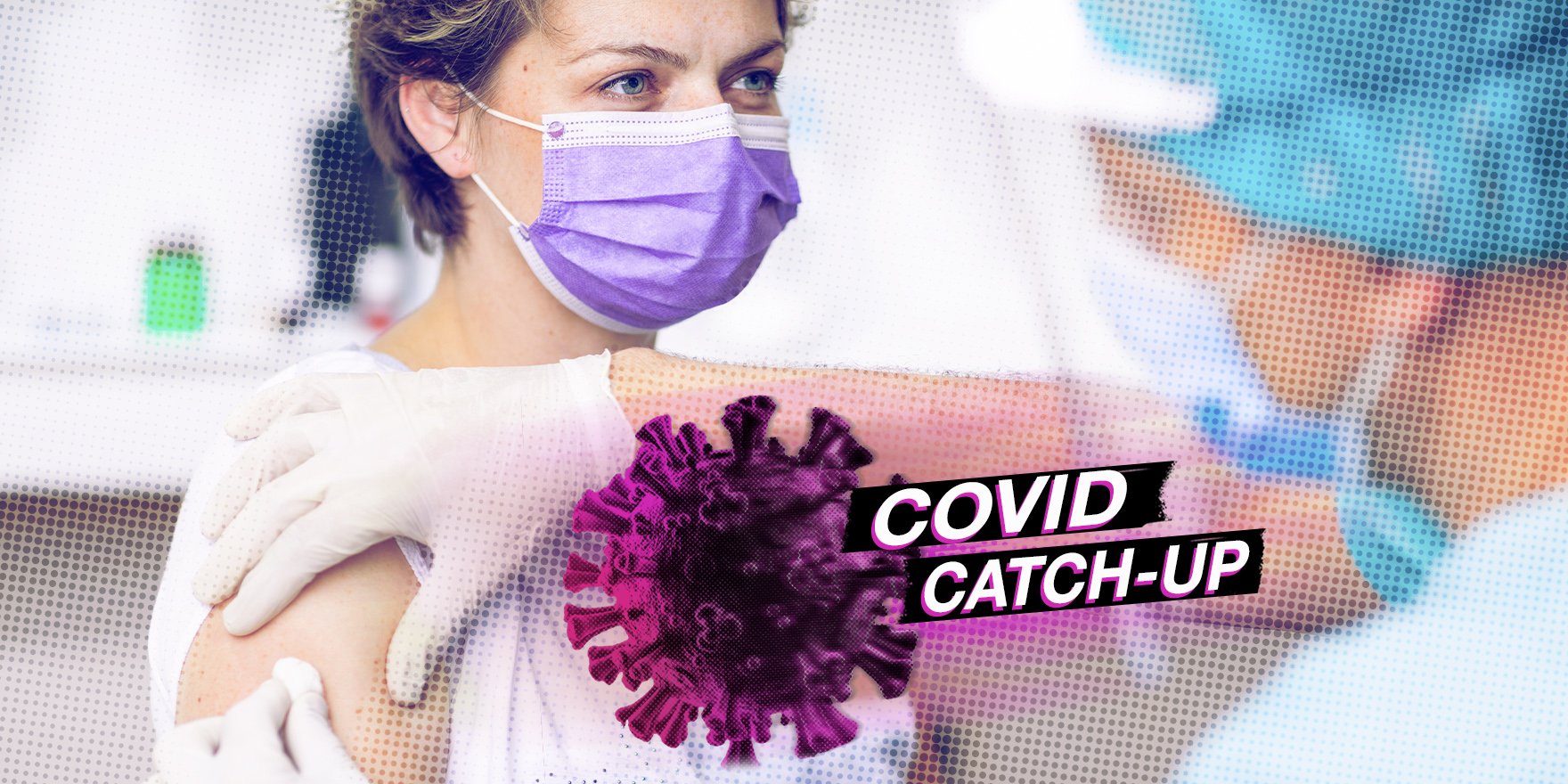And panic buyers revealed as younger, wealthier, with kids and death-anxiety.
Welcome to The Medical Republic’s COVID Catch-Up.
It’s the day’s COVID-19 news in one convenient post. Email bianca@biancanogrady.com with any tips, comments or feedback.
January 29
- Phase 3 data from Novavax COVID-19 vaccine suggests high efficacy in preventing infection.
- Panic buyers are wealthier, younger, with kids at home, anxious about death and with right-wing authoritarian tendencies, study suggests.
- US vaccine workers stuck in snowstorm go the extra mile.
- Latest confirmed COVID-19 infection numbers from around Australia.
The Novavax COVID-19 vaccine – one of the four vaccines the Australian government has negotiated purchase of – has shown significant efficacy in preventing infection with SARS-CoV-2 in phase 3, placebo-controlled trials.
The vaccine showed nearly 90% efficacy in preventing infection of any severity when administered to more than 15,000 uninfected individuals, a quarter of whom were over the age of 65 years, according to a company press release.
The study results are yet to be published in a peer-reviewed journal, but the trial suggested the vaccine was 85% effective at preventing the new UK strain, and 95% effective against the original COVID-19 strain. The rate of adverse events was similar between the vaccine and placebo arms.
However results from a phase 2 South African study of the vaccine suggested a much lower 60% efficacy against the South African strain, and even lower response rates in HIV-positive individuals.
Novavax’s vaccine targets the virus spike protein, and is stable at standard refrigeration temperatures.
Who were the people panic-buying toilet paper during the pandemic? The wealthy, those with kids, people with death anxiety or with a right-wing authoritarian streak, according to a study which took a ‘consumer foraging’ model and applied it to the pandemic.
The paper, published in PLOS ONE, examined the psychology of panic buying to develop a model of the features of these hectic hoarders, which they then applied to surveys of more than 3000 adults in the UK and Republic of Ireland.
They found panic buying was associated with being younger, female, having children at home, having a higher income but also having lost income due to the pandemic. They were also more likely to be paranoid, have depression or death anxiety, and have right-wing authoritarian tendencies.
People who were better at analytic reasoning were less likely to panic buy.
You have to admire the determination and tenacity of healthcare workers:
When Oregon public health workers got stuck in a snowstorm while driving back from a vaccination site, they knew the doses they held would expire in six hours.
— The New York Times (@nytimes) January 29, 2021
So they walked from car to car, with an ambulance crew on hand, to give the shots to drivers. https://t.co/ugRuFW1dNH pic.twitter.com/0XXGxhKVSM
Here are the latest confirmed COVID-19 infection numbers from around Australia to 9pm Thursday:
National – 28,794 with 909 deaths
ACT – 118 (0)
NSW – 5096 (3)
NT – 98 (0)
QLD – 1307 (1)
SA – 596 (0)
TAS – 234 (0)
VIC – 20,447 (3)
WA – 898 (1)



